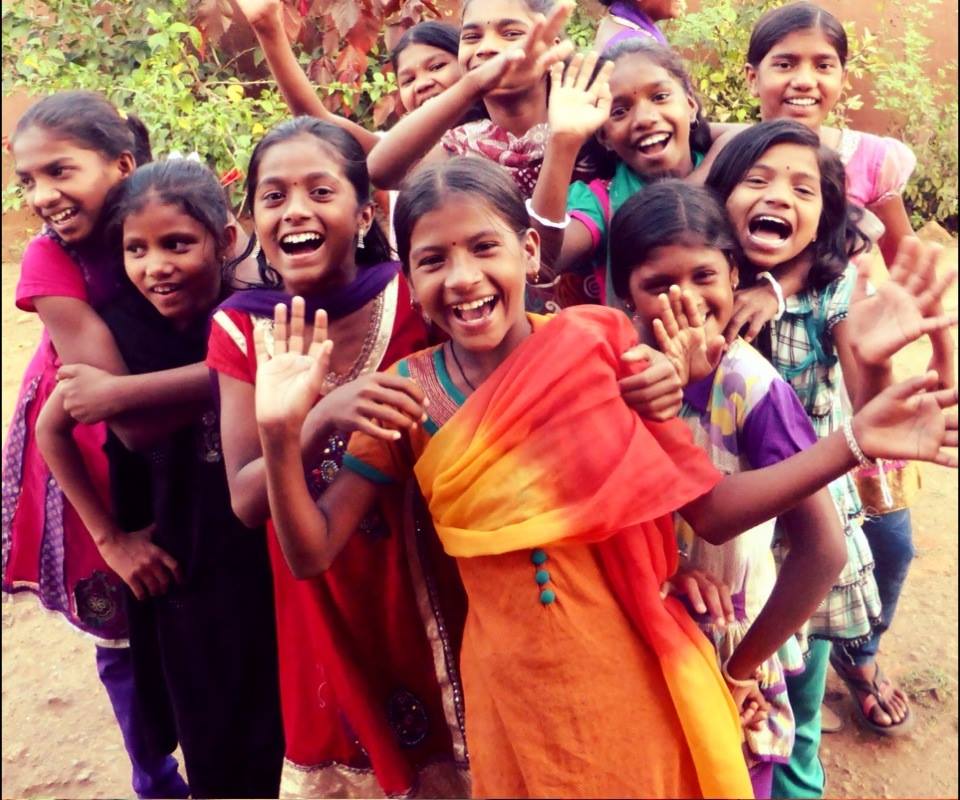
When Jacob Sztokman came to visit Mumbai in February 2011, little did he know that the trip would change his life – and the lives of a thousand children – forever.
Jacob, then a 42-year old father of four living in Modi’in, Israel, was working as a marketing executive for a hi-tech company. Through connections with a co-worker, he found himself walking through the slums of Mumbai with Father Trevor Miranda, the founder of REAP, an award-winning NGO that runs classes for children in the slums. As Jacob listened to Father Trevor’s stories about his work with the children, he was struck by the sights and sounds around him. He had never before encountered this kind of poverty, certainly not among children. With no running water, little sanitation, limited electricity, ill health and lack of nutrition, the children were at tremendous risk of physical and cognitive stunting, life-threatening diseases and child labor.
“These beautiful children,” Jacob recalls, “were no different than my own children. I could not remain passive in the face of such extreme poverty; this was an opportunity to help.” Jacob spent the next year engrossed in the plight of children in the slums of Mumbai. In an effort to figure out how he could help, he had
many conversations with Father Trevor and with other NGO’s involved in this cause. He learned that the most important tool to enable children to escape the cycle of poverty was education. However, there was a major obstacle keeping children from learning: that is, the need for basic survival. Parents often would send children to work for a few rupees a day rather than sending them to school, in order to ensure that they would have food to eat that day. Children, even as young as four years old, could be seen working as rag pickers or sewage cleaners – awful, unsanitary, dangerous jobs – in order to pay for food.
Jacob discovered that there was a very simple solution to both the immediate problem of survival and the broader goal of education: providing hot meals in school. Indeed, President Bill Clinton, whose organization, the Clinton Global Initiative, spends tens of millions of dollars in relief around the developing world, has said that the single most effective solution to combatting childhood poverty is to provide hot meals in school. The nutritious meals relieve the tension of basic survival for the parents, and provide a powerful incentive to send children to school.
It is a win-win solution.
By early 2012, Jacob started Gabriel Project Mumbai, with the goal of providing daily hot, nutritious meals to children attending school in the slums of Mumbai. In an innovative program called “Eat to Learn,” Gabriel Project Mumbai provides 1000 hot, nutritious meals to children ages 3-14 in the slums of Mumbai. GPM works with a local women’s business cooperative who prepares the meals, thus pr oviding economic sustenance to 140 women in the slums.
GPM also brings 40 Jewish volunteers from around the world each year to work with the GPM staff and local volunteers in the slums and help deliver meals while providing educational support in the form of informal classes and lessons in geography, science, English and more. GPM emphasizes the absolute importance in developing and working with local personnel and grassroots NGO’s to achieve the sustainable and replicable long term goals of the initiative. While international volunteers add an important element of development work, it is the cultivation of dedicated and passionate local teachers, local NGO partners, local staff, local volunteers and women employed from the slums that make GPM most impactful from a sustainability perspective.
The program is a win-win situation all around. The children receive nutrition, education, and literacy support, the women receive economic empowerment, and the volunteers receive a life-changing experience and vital lessons on issues of development, hunger and poverty around the world.
GPM has achieved some amazing things since its founding. In 2014, GPM accomplished the following:
• 275,000 hot, nutritious meals were prepared and delivered for 1000 children attending school in the slums of Mumbai
• Attendance rates in class improved by 50% • 1000 children received hygiene packs and education, including toothbrushes, toothpaste and soap
• 140 women in the slums built their business and provide for their families
• 20 local Indian interns provided informal education
“The lesson from all this is clear,” Jacob says. “Never give up hope. There is always something you can do to make a real difference in the lives of others. If you live with your heart open, you can find a way to reach out to those who need help and make real change.”
Today, in addition to running GPM, Jacob is also studying at Glocal, where he has met many inspiring colleagues and learned from many wonderful professors. “I’m so grateful for the opportunity to learn at Glocal,” Jacob says. “I have learned so much from my peers, as well as from my teachers. I believe that the program not only gives me the skills to make GPM better, but also provides many sources of inspiration that we really can make a difference in people’s lives.”
Jacob Sztokman


